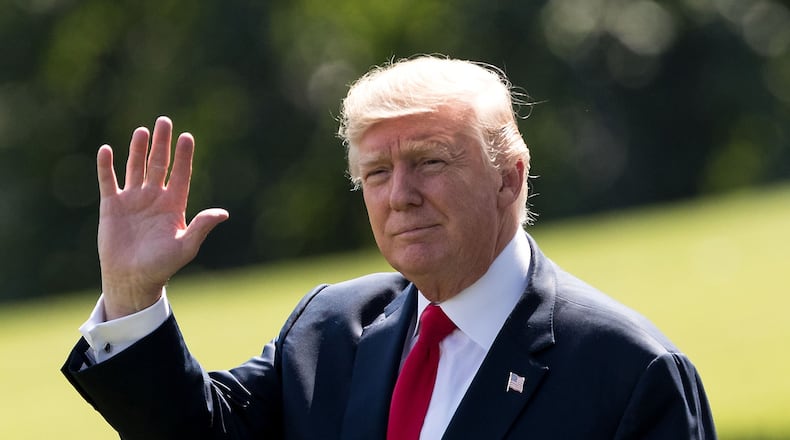President Donald Trump applauded a new resolution passed by the United Nations Security Council to impose sanctions against North Korea and labeled it as the largest economic punishment yet on the nation.
We found Trump was largely right about the resolution’s provisions, but experts cautioned that the true financial impact of the sanctions depend on future enforcement by member nations. We reached out to the White House but did not hear back.
The resolution adopted Aug. 5 comes after North Korea’s most recent ballistic missile launches, in violation of a ban on nuclear and missile tests. It says:
• North Korea shall not supply, sell or transfer coal, iron, iron ore, seafood, lead and lead ore to other countries;
• UN Member States shall not increase the number of work permits for North Korean nationals (unless approved by the Security Council Committee), based on concerns that their earnings support North Korea’s nuclear and ballistic missile programs;
• States shall prohibit the opening of new joint ventures or cooperative entities with North Korean entities and individuals, or the expansion of existing joint ventures through additional investments.
The resolution also identified nine individuals and four entities that would become subject to a travel ban and asset freeze. The asset freeze extends to the Foreign Trade Bank, a state-owned bank that serves as North Korea’s primary foreign exchange bank.
Provisions in the resolution could reduce North Korea’s revenue by about $1 billion, according to statements from delegates in the Security Council.
The ban on exports from North Korea will prevent it from earning “over a $1 billion per year of hard currency that would be redirected to its illicit programs,” said a resolution fact sheet from the U.S. Mission to the United Nations. The east Asian nation earns about $3 billion per year from export revenues, the fact sheet said.
Whether the Aug. 5 sanctions have the weight Trump professed depends on enforcement by other nations, experts told us.
The latest sanctions “could be the biggest economic sanctions resolution imposed on North Korea, measured in the amount of hard currency provided to the regime — IF enforced,” said Bonnie Glaser, a senior adviser for Asia and director of the China Power Project for the Center for Strategic and International Studies.
The claim that the United Nations sanctions would cost North Korea more than $1 billion is based on the assumption of “full and perfect” enforcement by all member states, said Benjamin Katzeff Silberstein, associate scholar at Foreign Policy Research Institute and co-editor of North Korean Economy Watch.
“Judging by previous sanctions rounds (and sheer logic) this is virtually impossible and extremely unlikely because China tends to be lax in enforcement even of resolutions against North Korea that it votes in favor of,” Katzeff Silberstein said.
In a post for North Korean Economy Watch, Katzeff Silberstein noted that if a previous resolution had already been implemented in full, “North Korea’s export revenues would already have been badly hit.”
Our ruling
Overall, the sanctions could represent about $1 billion in costs to North Korea — but experts say that greatly depends on other nations’ full enforcement of the sanctions.
Trump's statement is accurate but needs clarification or additional information. We rate it Mostly True.
“United Nations Resolution is the single largest economic sanctions package ever on North Korea. Over one billion dollars in cost to N.K.”
— Donald Trump on Saturday, Aug. 5, 2017 in a tweet
About the Author
The Latest
Featured


